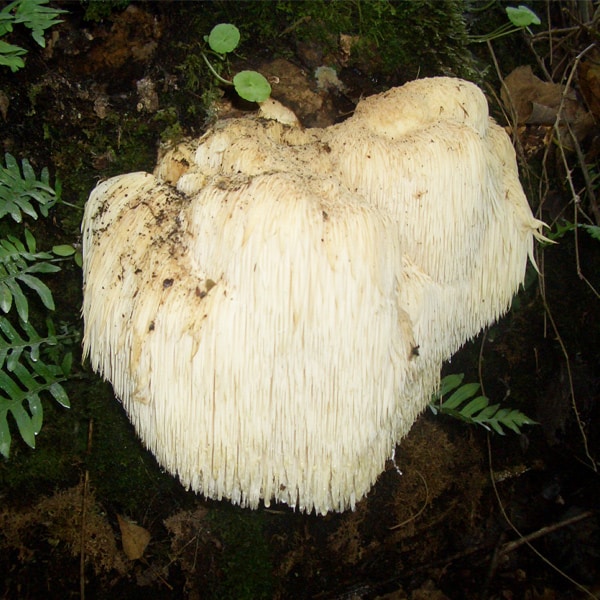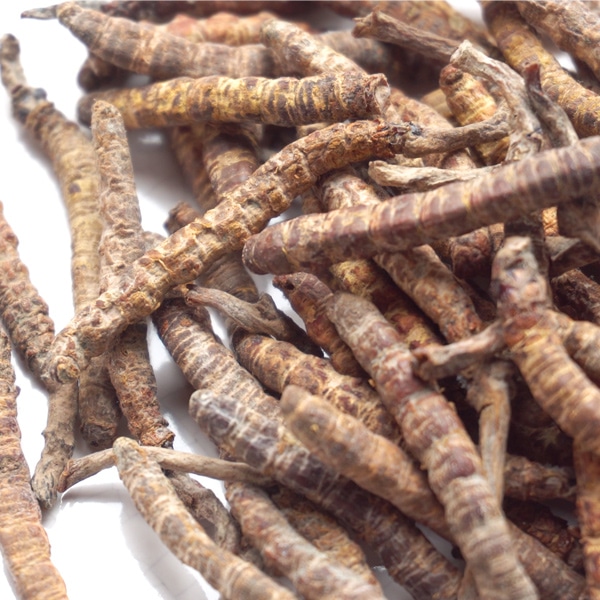Anxiety
Anxiety disorders
Agitation, nervousness, overwhelm… These are states that we relate to anxiety, a physiological reaction in which our body acts to deal with situations that generate stress, but what causes that stress? There is a certain genetic predisposition, but the real culprits are the so-called “stressors”. Among the most common are tensions arising from work, family problems, changes in residence and economic difficulties.
It is estimated that 13.8 – 25.6% of primary care patients suffer from anxiety disorders. In general terms, anxiety is more common in women aged 40-55 years and is usually associated with depression, anger, fear or sadness.

PUBLISHED BY CATALINA FERNÁNDEZ DE ANA PORTELA – Updated on June 17, 2020. EDITED BY COMUNICACION HIFAS DA TERRA
Índex
- Definitions: anxiety, panic, phobia and depression
- Stress
- Common causes of anxiety disorders
- Physical and psychological symptoms
- Reishi: antioxidant and relaxing
- Lion’s mane: improves brain function and calms mental activity
- Cordyceps: increases resistance to stress and reduces anxiety
- Scientific research of interest on anxiety
- Nutrition recommendations
- Healthy habits
- References
Due to its social impact, 1 in 10 people suffer from anxiety at some point in their lives, scientists investigate their mechanisms of action and evaluate the effectiveness of conventional therapies. In addition, each year they conduct more studies on the impact of complementary therapies, whether nutritional or psychological. These include meditation, yoga, specific diets and the taking of nutritional supplements that act on markers associated with anxiety and / or depression.
In relation to complementary therapies, a meta-analysis conducted in 2010 evaluated 39 studies published in reference journals such as PubMed, PsycINFO and Cochrane. With a sample of 1 140 patients, it was concluded that mindfulness was a therapy with promising results in the treatment of anxiety and emotional disorders.
Definitions: anxiety, panic, phobia and depression
Another related term is phobia, an unjustified fear of things or situations that are not objectively dangerous. Phobias only manifest themselves in contact with what provokes them, but, if prolonged in time and without a solution, they could lead to anxiety.
As we explained earlier, people who manifest anxiety and panic also often suffer from depression. In addition, it is usual for a depressed person to manifest sadness and lack of appetite, common situations in this type of disorders.
Stress
The terms “anxiety” and “stress” are used as synonyms, but describe different situations. Stress is part of the life of most people and can have a positive impact on the individual whenever it manifests moderately and in a limited period of time. Not only alerts of dangers, but acts as a spring to deal with a certain situation. On the other hand, we talk about its negative consequences when high levels of stress are recorded over prolonged periods of time.
Common causes of anxiety disorders
- Occasional circumstances and life experiences: work and study stress, pregnancy, changes of residence, etc. they are usually the most common stressors (or stressors). Occasionally, stress manifests itself after the situation that caused it has occurred. In this case we talk about post-traumatic stress disorders.
- Genes: scientific studies suggest that genetic inheritance could be involved in the development of an anxiety situation, this inheritance not being a determining factor for its development.
- Drugs: the consumption of certain drugs such as ecstasy or LSD have been linked to anxiety. Caffeine has also been reported as a possible cause of anxious episodes.
Physical and psychological symptoms
- Constant worry
- Fatigue
- rritability
- ack of rest and insomnia
- ack of concentration
- alpitations or acceleration of the heart
- weating
- uscle tension, back pain
- remors
- eep breathing
- Dizziness
- Diarrhea
Which mushrooms have useful properties for anxiety?

Reishi
It has antioxidant, relaxing and soothing properties
- Reishi contains polypeptides that act as precursors of neurotransmitters and endorphins. These help to give an adequate response in situations of stress.
- These polypeptides possess a peripheral anticholinergic and depressant effect of the central nervous system.
- In addition, sedative and inhibitory effects on neuronal activity have been attributed to it, which induces general relaxation.
Antioxidant capacity of HdT´s Reishi
Green tea is one of the most antioxidant substances that exist. External laboratories have confirmed that the antioxidant capacity of the Reishi of Hifas da Terra is equivalent to the green tea. The Ganoderma lucidum extract has an antioxidant capacity of 320.16 ± 0.35 micromoles equivalent of Trolox / g of extract and its phenolic content is 4.17 ± 0.06 g gallic acid equivalent / 100 g of extract.

Lion’s mane
Improves brain function and calms mental activity
- The Lion’s mane modulates certain neurotransmitters involved in depression and anxiety. Improvements in anxious-depressive states and sleep-related problems have been observed in several studies.
- This fungus is able to modulate substances that decrease inflammation and stimulate cognitive functions. This action favors adaptation to stressful circumstances.

Cordyceps
Increases stress resistance and reduces anxiety
- The Cordyceps increases the adaptability and resistance to fatigue, stress or anxiety by stimulating the adrenal glands and modulating the nervous system.
- The extract of this fungus, in addition to having adaptogenic properties, has revitalizing and toning effects. Improvements in cardiac and respiratory function have been observed.
Scientific research of interest on anxiety
Anxiety has implications for the general state of our health. We will review the pathologies associated with anxiety disorders and collect other recently published scientific value information:
1. Prevent is better than cure: diseases associated with anxiety
A scientific study conducted on 130 patients presented at a psychiatry congress in 2006 concluded that patients with anxiety disorders were at higher risk of suffering some medical diseases than people without anxiety. According to his summary, the researchers found statistically significant differences in musculoskeletal and cardiac diseases, headaches and allergies.
2. Diet is more important than you think
The publications that relate anxiety and nutrition show that the consumption of fish rich in omega 3, legumes, whole grains, virgin olive oil and raw nuts has a positive impact. The reduction of the intake of red meats and dairy products has this same positive impact.
3. Physical exercise, meditation and yoga
No one doubts the benefits of regular physical exercise, but in this particular case, there is ample evidence of its positive impact on anxious-depressive symptoms. Thus, it has been shown that playing sports frequently (3-5 days a week) with a high energy expenditure (weekly expenditure greater than 17.5 kcal / kg of weight) is more beneficial than the one with low caloric impact and less frequent.
Some reports also conclude that the therapeutic benefits of physical exercise and yoga have similar results to other cognitive behavioral therapies.
4. Limit the caffeine levels
—Another coffee?
—No thanks.
The consumption of caffeine has been linked to the increase of anxious states and sleep disorders. There has even been a misuse of caffeine in people with eating disorders. However, gradual reduction is recommended instead of total cessation for a better adaptation of the organism.
5. Protect your bowel-brain axis
Recent research on the gut-brain axis has opened up multiple lines of research around autoimmune and psychological diseases. Based on these we know that certain intestinal microorganisms are capable of producing substances that function as neurotransmitters in the brain. Hence, it is estimated that 95% of serotonin (substance related to happiness and good humor) that our body produces comes from the intestines.
On the other hand, we know that an imbalance in intestinal microorganisms (dysbiosis) can contribute to the development of certain diseases. A study carried out in 2017 includes diseases linked to the intestine-brain axis. Anxiety and depression are two of the pathologies included and both show that the increase in serotonin levels is an indicator of improvement.
The taking of prebiotics, given their ability to regulate the intestinal flora (microbiota), may be of interest to avoid dysbiosis and related situations such as, for example, inflammation.
6. Levels of amino acids
A study presented at the X National Congress of Psychiatry in 2006 showed the correlation of amino acid levels and symptoms associated with anxiety in 40 middle-aged women. Based on this, low levels of the glutamic, aspartic, taurine, tryptophan, tyrosine and ornithine amino acids were associated with anxiety.
7. The value of antioxidants
Nutritional recommendations
The evidence published in recent years links a reduced total antioxidant status with the development of disorders such as anxiety. At this time it is known that oxidative stress generates inflammation, loss of neuronal plasticity, etc. For this reason, the antioxidant effects of conventional treatments are considered valuable. These help to eliminate the oxidative stress and its consequences and protect from the damage produced in the neurons.
Although nutritional psychiatry is a recent field of study, the observational literature confirms that diet has an influence on common mental disorders such as depression.
The SMILES study investigated how dietary training can improve the treatment of depressive episodes. After applying the model ‘ModiMedDiet’-rich in vegetables, fruits and whole grains, to the study group, significant improvements were observed. This model also emphasizes the increase in the consumption of fatty fish, extra virgin olive oil, legumes, raw nuts without salt, as well as in the reduction of red meats and dairy products.
As a summary…
- Follow a diet as varied as possible: include fresh fruits and vegetables, organic and seasonal, preferably.
- Moderate the red meat and meat products. Increase vegetables, legumes, fish and mushrooms.
- Avoid as much as possible, the consumption of processed foods such as sauces, sausages and pasta.
- Avoid refined, processed and packaged flours (pasta, white bread, sliced bread, toast, cookies …)
- Prioritize the use of whole grain, quality and unprocessed flours.
- Eat foods rich in unsaturated healthy fats that improve brain function such as nuts, blue fish, flax seeds or olive oil.
- Drink 1.5 to 2 liters of water per day.
Expert Advice
Our professional mycotherapy specialist advisors can provide tailored advice and mycotherapy protocols using Hifas da Terra organic mushroom products.
Healthy habits
- Practice a minimum of 60 minutes of exercise per day. Take advantage of any moment for doing it, from taking a walk and making the purchase to climbing stairs.
- Do not smoke. If you cannot quit smoking, limit the number of cigarettes a day.
- Reduce the alcohol consumption to beer and wine. Avoid taking more than one glass / glass a day.
- Perform relaxation exercises and deep breaths. Practice yoga and meditation.
- Try to establish a reference time to rest. Respect the hours of sleep and, if possible, perform relaxing exercises before sleep. This will help you eliminate fatigue and irritability and lower levels of hormones related to stress and anxiety.
- Book moments to enjoy your time and read, take a bath, rest, meditate, paint …
- Finally, adopt a positive and optimistic attitude towards life. Enjoy the natural foods and the simple things that surround you.
- Ying Xu, Chuang Wang, Jonathan J Klabnik, and James M O’Donnell (2014). Novel Therapeutic Targets in Depression and Anxiety: Antioxidants as a Candidate Treatment. Curr Neuropharmacol. Mar; 12(2): 108–119.
- Anthony P. Winston, Elizabeth Hardwick and Neema Jaberi (2005) Neuropsychiatric effects of caffeine. Advances in Psychiatric Treatment, Volume 11, Issue 6 pp. 432-439.
- Bercik P. et al. (2011) The intestinal microbiota affect central levels of brain-derived neurotropic factor and behavior in mice. Gastroenterology. 141 599–609, 609 e591–593.
- Espluga N, Díaz B, Castaño J, Pascual JC, García-Ribera C, Bulbena A (2006) Póster 771 ¿Tienen más enfermedades médicas los pacientes con trastornos de ansiedad? X Congreso Nacional de Psiquiatría.
- Fermented foods, neuroticism, and social anxiety: An interaction model. Hilimire MR, DeVylder JE, Forestell CA (2015) Psychiatry Res. Aug 15;228(2):203-8.
- Hofmann, S. G., Sawyer, A. T., Witt, A. A., & Oh, D. (2010). The effect of mindfulness-based therapy on anxiety and depression: A meta-analytic review. Journal of Consulting and Clinical Psychology, 78(2), 169-183.
- J. Bilbao, J. Aizpiri, J. Montero y A.Filibi. (2006) Póster 427 Trastornos de ansiedad y aminoacidograma libre periférico. X Congreso Nacional de Psiquiatría.
- Jacka, Felice N. (2017) Nutritional Psychiatry: Where to Next? EBioMedicine , Volume 17 , 24 – 29.
- Koh JH et al.,Antifatigue and antistress effect of the hot-water fraction from mycelia of Cordyceps sinensis.Biol Pharm Bull. 2003
- Larroya-García A, Navas-Carrillo D, Orenes-Piñero E (2018) Emerging literature in the Microbiota-Brain Axis and Perinatal Mood and Anxiety Disorders. Psychoneuroendocrinology. 95:86-96. doi: 10.1016/j.psyneuen.2018.05.020. Epub 2018 May 17.
- Matsuzaki H, Shimizu Y, Iwata N, Kamiuchi S, Suzuki F, Iizuka H, Hibino Y, Okazaki M. Antidepressant-like effects of a water-soluble extract from the culture medium of Ganoderma lucidum mycelia in rats. BMC Complement Altern Med. 2013 Dec 26;13:370. doi: 10.1186/1472-6882-13-370. PubMed PMID: 24369991; PubMed Central PMCID: PMC3879659.
- Michael Camilleri, M.D. (2009) Serotonin in the Gastrointestinal Tract. Curr Opin Endocrinol Diabetes Obes. 16(1): 53–59.
- Nagano M et. al.Reduction of depression and anxiety by 4 weeks Hericium erinaceus intake.Biomed Res. 2010 Aug;31
- Patrice D. Cani, Claude Knauf (2016) How gut microbes talk to organs: The role of endocrine and nervous routes. Mol Metab. 5(9): 743–752.
- Prior RL, Cao G (1999). Antioxidant capacity and polyphenolic components of teas: implications for altering in vivo antioxidant status. Proc Soc Exp Biol Med 220(4):255-61.
- Pusceddu MM, Murray K, Gareau MG (2018) Targeting the Microbiota, from Irritable Bowel Syndrome to Mood Disorders: Focus on Probiotics and Prebiotics. Curr Pathobiol Rep. 2018 Mar;6(1):1-13. doi: 10.1007/s40139-018-0160-3. Epub 2018 Feb 12.
- Rahul Mittal et al. (2017) Neurotransmitters: The critical modulators regulating gut-brain axis.J Cell Physiol. Sep; 232(9): 2359–2372.
- Saeed, Sy Atezaz; Antonacci, Diana J.; Bloch, Richard M. (2010) Exercise, Yoga, and Meditation for Depressive and Anxiety Disorders. American Family Physician. Vol. 81 Issue 8, p981-986. 6p. 3 Charts.
- Singh R, Dhingra GS, Shri R. Evaluation of Antianxiety Potential of Four Ganoderma (Agaricomycetes) Species from India in Mice. Int J Med Mushrooms. 2016;18(11):991-998. doi: 10.1615/IntJMedMushrooms.v18.i11.40.
- Socala K, Nieoczym D, Grzywnowicz K, Stefaniuk D, Wlaz P. Evaluation of Anticonvulsant, Antidepressant-, and Anxiolytic-like Effects of an Aqueous Extract from Cultured Mycelia of the Lingzhi or Reishi Medicinal Mushroom Ganoderma lucidum (Higher Basidiomycetes) in Mice. Int J Med Mushrooms. 2015;17(3):209-18.